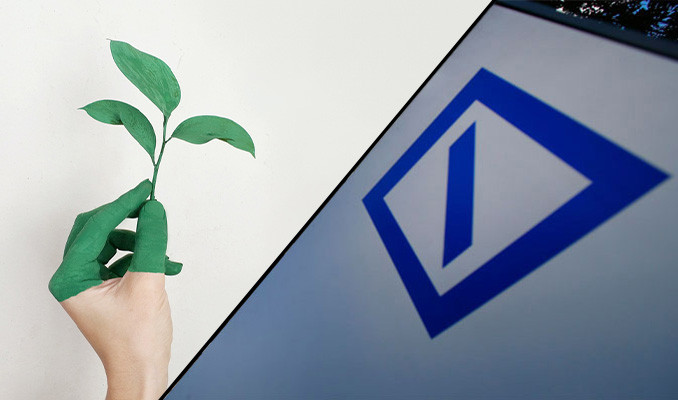Deutsche Bank AG is in talks with a number of Turkish clients to ramp up funding it says will be tied to environmental, social and governance metrics, as part of a wider plan to tap into an increasingly lucrative corner of finance.
Claire Coustar, Deutsche’s global head of ESG (Environmental, Social, and Governance) for fixed income and currencies and vice chair of its Turkey unit, says she expects “a lot of positive stories” to come out of Turkey on the ESG front. She also notes that adding the label “will be very important going forward for bringing international investors into the country.”
Chief Executive Officer Christian Sewing has made clear he intends Deutsche Bank to gain a solid foothold in the rapidly expanding market for ESG. That’s as Wall Street giants like JPMorgan Chase & Co. announce plans to make ESG ubiquitous across their products, after recently attaching the label to
derivatives. Some of the world’s biggest banks, including Deutsche, have also started experimenting with ESG hedges and repo agreements, including in emerging markets such as Turkey.
The proliferation of ESG products is raising questions about how well they actually contribute to social justice or a greener planet. Stricter European regulations have already forced the region’s financial industry to strip the ESG label off about $2 trillion in assets as concerns of greenwashing
grow. But Deutsche and other major banks say the addition of ESG metrics to more corners of finance will help spread sustainability.
Deutsche just agreed a $300 million ESG repurchase agreement with Akbank TAS, Turkey’s second-biggest bank by market value.
“We would like to expand this to other financial institutions in Turkey and outside Turkey to have ESG-linked transactions in the financial or derivatives space,” Coustar said.
The bilateral deal sets targets for gender diversity, renewable energy use and a requirement to avoid providing funds to coal power plants. Both Deutsche and Akbank declined to provide further details of the agreement.
Orhan Ozalp, CEO of Deutsche Bank AS Turkey, says the Akbank deal is part of a goal to reach ESG- linked financing of 10 billion liras ($1.2 billion) by the end of the year. The lender’s ESG-linked deals in the country through August this year have totaled 5.2 billion liras, he said.
“We are working on similar significant transactions,” Ozalp said. “There are active discussions with leading systemically important banks on that topic.”
Deutsche, whose presence in Turkey started 112 years ago after the financing of the Istanbul-Baghdad railway, helped fund several infrastructure projects in the past decade including the Istanbul-Izmir highway, Ankara airport and a suspension bridge across the Dardanelles and connecting roads.
Overall, Deutsche Bank has set itself targets to facilitate 200 billion euros ($260 billion) in sustainable finance and investments by the end of 2023, and has also linked top executives’ pay to those targets.
Attaching ESG goals to deals conducted in emerging markets, where track records on human rights and social justice seem hard to reconcile with a label intended to denote ethical finance, remains a controversial undertaking. Even so, some investors argue that emerging markets are an ideal place to apply ESG strategies, as there’s a lot of potential for a transition over to more sustainable business and societal models.
Turkey’s financial industry has made considerable strides when it comes to gender diversity, with women making up slightly more than half of the workforce, according data from the Banks
Association of Turkey. And there are also signs that fewer banks now lend to coal-fired power plants. But the country’s history of human rights abuses stands out, including the jailing of
journalists, politicians and business people.
Nevertheless, Ozalp says investors are lining up. “Turkey is getting a lot of demand and we are trying to expand the investor base for Turkey through EM connections like from Latin America or Asia Pacific regions in terms of green or ESG-linked investments,” he said.
Bloomberg
